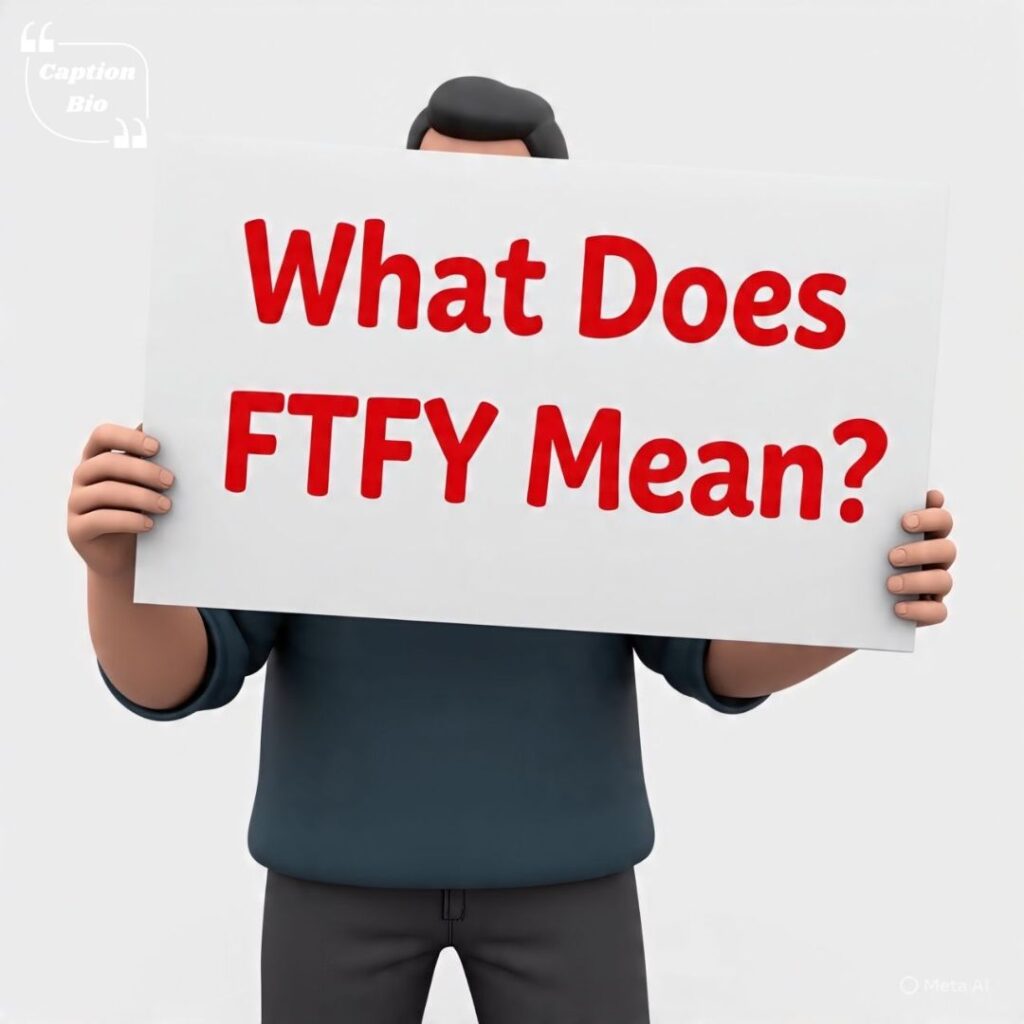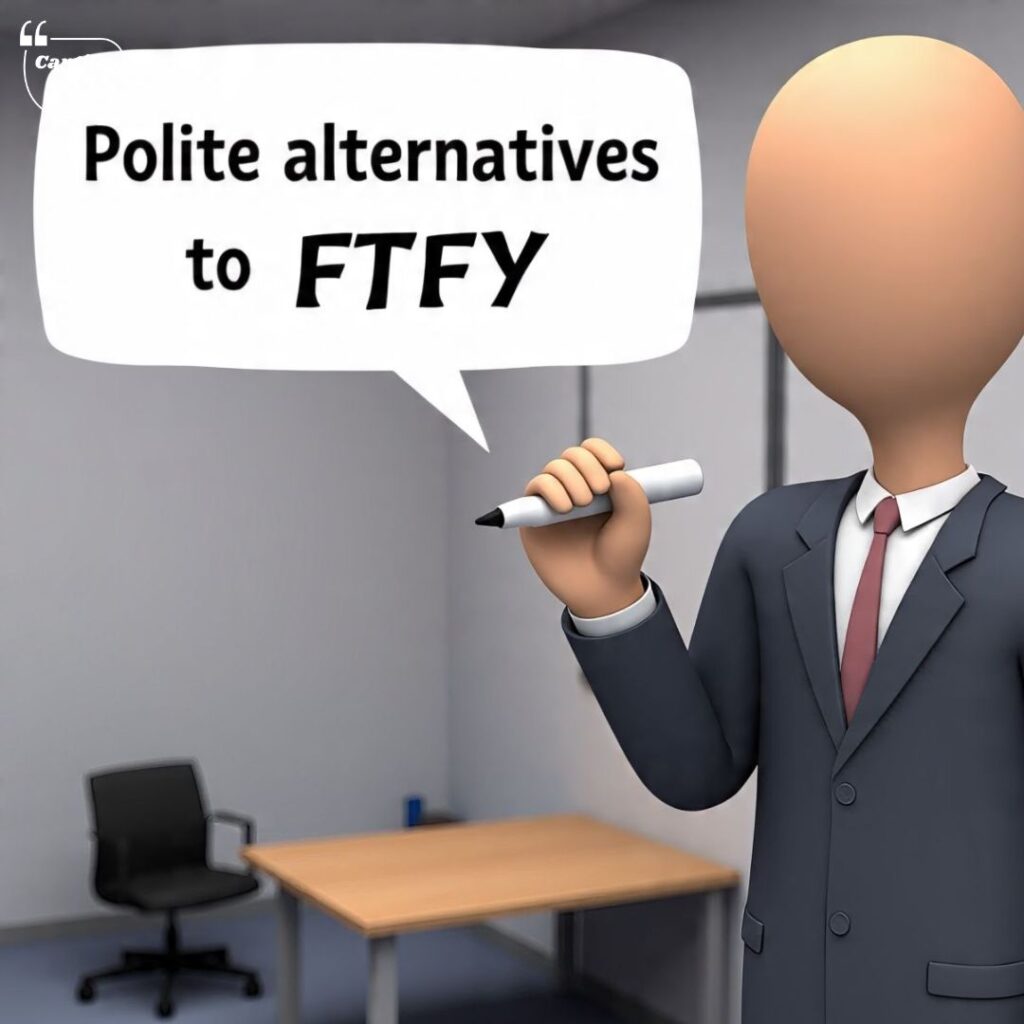In today’s fast-paced digital world, internet slang and abbreviations have become an integral part of online communication. One such acronym that has gained significant traction across social media platforms, forums, and messaging apps is FTFY.
As we navigate through 2025, understanding this trending phrase and its appropriate usage has become more important than ever.
Whether you’re scrolling through Reddit threads, engaging in Twitter discussions, or participating in Discord conversations, you’ve likely encountered FTFY in various contexts.
While this abbreviation can be a useful tool for quick corrections and clarifications, it’s essential to understand when and how to use it appropriately to maintain positive online interactions.
🙏 Divine Prayer Generator
Select a prayer category to begin
What Does FTFY Mean?

FTFY is an internet acronym that stands for “Fixed That For You.” This phrase is typically used when someone wants to correct, improve, or humorously modify another person’s statement or post. The abbreviation has become particularly popular on platforms like Reddit, Twitter, Facebook, Instagram, and various online forums.
The phrase serves multiple purposes in digital communication:
- Correction Tool: FTFY is commonly used to point out and fix factual errors, grammatical mistakes, or spelling issues in someone’s post or comment.
- Humorous Enhancement: Many users employ FTFY to add comedic value to conversations by making witty modifications to original statements.
- Clarification Method: It helps clarify ambiguous statements or adds missing information to make the original message clearer.
- Sarcastic Commentary: Sometimes used sarcastically to make a point or express disagreement with the original statement.
The trending nature of FTFY in 2025 reflects our increasingly connected world where quick, efficient communication is valued. However, the tone and context of its usage can significantly impact how the message is received by others.
Common Uses of FTFY
Understanding the various applications of FTFY can help you recognize when you encounter it and decide whether it’s appropriate for your own use:
Grammar and Spelling Corrections:
- Original: “I went to the store yesterday and bought some grocerys.”
- Response: “I went to the store yesterday and bought some groceries. FTFY.”
Factual Corrections:
- Original: “The Earth revolves around the moon.”
- Response: “The moon revolves around the Earth. FTFY.”
Humorous Modifications:
- Original: “Monday mornings are the best!”
- Response: “Monday mornings are the worst! FTFY.”
Adding Missing Information:
- Original: “The meeting is at 3.”
- Response: “The meeting is at 3 PM EST. FTFY.”
Technical Corrections:
- Original: “My JavaScript code has a syntax error.”
- Response: “Your JavaScript code is missing a closing bracket. FTFY.”
Opinion Adjustments:
- Original: “Pineapple on pizza is delicious.”
- Response: “Pineapple on pizza is controversial. FTFY.”
While these uses demonstrate the versatility of FTFY, it’s important to consider the potential negative implications. The abbreviation can sometimes come across as condescending, passive-aggressive, or dismissive, especially in professional or formal settings.
Polite Alternatives to FTFY

When you want to correct someone without appearing rude or dismissive, consider these courteous alternatives:
Just a small correction:
This phrase softens the impact of pointing out an error and shows that you’re not trying to embarrass the person.
Example: “Just a small correction: The conference is scheduled for Thursday, not Friday.”
Why it works: It minimizes the significance of the error while still providing the necessary correction.
I believe you meant:
This alternative shows respect for the original poster while gently suggesting the correct information.
Example: “I believe you meant ‘accept’ instead of ‘except’ in your previous sentence.”
Why it works: It assumes good intent and allows room for the original poster to maintain dignity.
Let me clarify:
This phrase positions you as someone providing helpful information rather than pointing out a mistake.
Example: “Let me clarify: The deadline is next Monday, not this Friday.”
Why it works: It focuses on providing clarity rather than highlighting errors.
A quick fix for you:
This alternative maintains a helpful tone while offering assistance.
Example: “A quick fix for you: The link in your post seems to be broken.”
Why it works: It frames the correction as assistance rather than criticism.
Perhaps you meant:
This gentle approach gives the benefit of the doubt while offering the correction.
Example: “Perhaps you meant ‘definitely’ instead of ‘defiantly’ in your comment.”
Why it works: It’s non-confrontational and assumes the error was unintentional.
Professional Alternatives to FTFY
In workplace or formal settings, using more professional language is crucial for maintaining positive relationships:
I made a small adjustment:
This phrase presents the correction as a collaborative effort rather than criticism.
Example: “I made a small adjustment to the quarterly report to reflect the latest sales figures.”
Why it works: It positions the correction as teamwork and improvement rather than pointing out flaws.
Here’s a revised version:
This alternative focuses on providing an improved version without dwelling on the original error.
Example: “Here’s a revised version of the presentation with updated statistics.”
Why it works: It emphasizes improvement and progress rather than mistakes.
I noticed a minor error and corrected it:
This professional approach acknowledges the error while showing that you’ve taken care of it.
Example: “I noticed a minor error in the spreadsheet formulas and corrected it for accuracy.”
Why it works: It’s direct but diplomatic, showing attention to detail without being critical.
Allow me to suggest:
This phrase positions your correction as a professional suggestion rather than a fix.
Example: “Allow me to suggest changing the meeting time to 2 PM for better attendance.”
Why it works: It’s respectful and presents the correction as a recommendation.
I’d like to propose an update:
This alternative frames the correction as a professional proposal.
Example: “I’d like to propose an update to the project timeline based on recent developments.”
Why it works: It’s collaborative and forward-thinking.
Casual Alternatives to FTFY

For informal conversations with friends, family, or casual acquaintances, these alternatives maintain a friendly tone:
Fixed it for you!
This expanded version of FTFY removes the abbreviation while keeping the helpful intent.
Example: “You meant ‘weekend’ instead of ‘weekday.’ Fixed it for you!”
Why it works: It’s clear and friendly without the potential negative connotations of the abbreviation.
Here, this might be better:
This casual alternative offers a suggestion rather than a correction.
Example: “Here, this might be better: ‘See you at 7 PM’ instead of ‘See you at 7 AM.'”
Why it works: It’s helpful and non-critical.
Tweaked it a bit:
This light-hearted phrase makes the correction seem minor and collaborative.
Example: “Tweaked it a bit: This version flows more smoothly.”
Why it works: It keeps the tone casual and friendly.
Quick heads-up:
This alternative provides the correction as helpful information.
Example: “Quick heads-up: I think you meant ‘their’ instead of ‘there.'”
Why it works: It’s friendly and positions the correction as helpful information.
Little fix:
This casual phrase minimizes the significance of the error.
Example: “Little fix: The restaurant closes at 9 PM, not 10 PM.”
Why it works: It’s brief and non-threatening.
User-Friendly Texting Examples
Here are practical examples of how to implement these alternatives in real texting situations:
- “Hey, I think you meant ‘their’ instead of ‘there.’ Just a friendly heads-up!”
- “Quick update: The correct date is March 15, not March 25!”
- “I adjusted your draft slightly to improve clarity—hope that helps!”
- “Just a small tweak: It’s ‘recommend,’ not ‘recomend.'”
- “Oops, I believe the right link is this one: [Insert Link].”
- “Here’s a smoother version of your sentence—let me know what you think!”
- “I made a quick edit to the document for better readability.”
- “Here’s a minor revision that might be clearer!”
- “A little fix: The meeting starts at 3, not 4. Hope that helps!”
- “I think ‘effect’ fits better than ‘affect’ in this case. Just a friendly tip!”
- “Quick correction: It’s ‘definitely’ not ‘defiantly’ in your message.”
- “Small adjustment: The event is on Saturday, not Sunday.”
- “Here’s an updated version with the correct phone number.”
- “I noticed a small typo and fixed it for you.”
- “Minor update: The price is $50, not $500.”
These examples demonstrate how to maintain a helpful and friendly tone while providing necessary corrections or improvements.
How to Choose the Best Alternative?
Selecting the most appropriate alternative to FTFY depends on several key factors:
Consider Your Audience
Professional Settings: Use formal language like “I made a small adjustment” or “Here’s a revised version” when communicating with colleagues, clients, or in business contexts.
Casual Conversations: Opt for friendly alternatives like “Fixed it for you!” or “Quick heads-up” when texting friends or family.
Online Communities: Consider the culture of the specific platform or group you’re participating in.
Assess the Context
Public Forums: Be extra careful about tone in public spaces where your correction might be seen by many people.
Private Messages: You can be more direct and personal in one-on-one conversations.
Group Chats: Strike a balance between being helpful and not appearing to show off.
Evaluate the Relationship
Close Friends: You can be more casual and direct with people you know well.
Acquaintances: Use more polite and formal alternatives to maintain positive relationships.
Professional Contacts: Always err on the side of formality and politeness.
Consider the Type of Error
Minor Typos: Use gentle alternatives like “Just a small correction.”
Factual Errors: Be clear but respectful with phrases like “I believe you meant.”
Significant Mistakes: Use more formal approaches like “I noticed an error and corrected it.”
Conclusion
As we navigate the digital landscape of 2025, understanding the nuances of online communication becomes increasingly important. While FTFY remains a popular and trending acronym, knowing when and how to use alternatives can significantly improve your digital interactions and relationships.
The key to effective online correction lies in maintaining respect, clarity, and helpfulness. Whether you’re participating in professional discussions, casual conversations, or social media interactions, choosing the right tone and approach can make the difference between being seen as helpful or condescending

Daniel Miller is a passionate writer, SEO expert, and blogger, specializing in Bible verses, prayers, and faith-based content at PrayerVibe.







